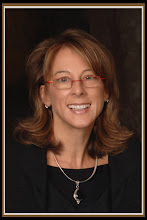Today I am excited to share a special guest post by Susan Beausang, President of 4Women.com and designer of the newly patented BeauBeauR head scarf, a fashionable scarf specifically designed for women and girls with medical hair loss. Susan Beausang is a true warrior for women and a godsend for women with medical hair loss. 4Women.com's mission is to help women and girls cope with the emotional upheaval of medical hair loss with dignity and confidence and to advocate for greater understanding of the emotional impacts of medical hair loss among medical professionals and the public.
Loving Our Bald Selves
If we can face life’s challenges feeling good about ourselves, we can often meet those challenges with more clarity, more determination, and more understanding. At no time is such love of self more important than when fighting cancer. And yet many women find their love of self to be compromised by the emotions stirred when they find a bald, “sick-looking” person staring back at them in the mirror. Even women who rise above self-deflating thoughts must guard against the public stares, looks of pity and unsolicited comments that remind them that they visually represent cancer simply because they lack hair.
As our awareness of the relationship between emotional well-being and physical healing grows, cancer care is gradually expanding to include emotional and appearance support. Nonetheless, there is still very little real understanding of the emotional impacts of medical hair loss. Without hair, many women feel stripped of their identity and femininity, making it even more difficult to maintain the sense of positive optimism that is so important for healing. Those women need to know that hiding is neither the only nor the best option. Women who lose their hair during chemo want to continue living, not just coping.
Among those women who lose their hair due to chemotherapy, some consider it to be the least of their worries, insignificant or even liberating. Women's responses are as diverse as women. There are women who find it to be one of or even the most difficult aspect of cancer. Those women find few or no resources to acknowledge or assist them with the emotions triggered by hair loss, and they have little time and energy to seek out those resources or support. Well-meaning friends and family may minimize or dismiss their feelings, wrongly assuming that it is a somehow separate and less traumatic issue than the cancer itself. As a result, women can suffer in isolation, made to feel vain, guilty, or out-of-touch with what matters most if they express or show their true grief. Up until a woman loses her hair to chemotherapy, she will often put most of her energy into maintaining a sense of normalcy for the benefit of loved ones, especially children. Many women find that it is their hair loss that pushes their parents, partners, and children over the edge with fear.
Rather than face the emotional side of chemo-induced hair loss alone, women need more understanding, more resources, and more options for coping with the drastic assault on their self-esteem that often accompanies hair loss. In addition to greater awareness, women need more fashionable, more comfortable, more stylish options for headwear so that they can maintain their sense of dignity and self esteem in the face of cancer. There is a common misconception that when facing something as terrible as cancer, women will settle for any head cover and are unwilling to spend money on their appearance. While this may be true of some, there are many, many women who desperately want to feel normal and beautiful despite cancer. Wigs allow many women to face cancer without advertising their health status to co-workers or to the general public. For many others, wigs feel extremely unnatural and tend to magnify the negative emotions that come with their hair loss. "Cancer turbans" not only sound like disease accessories but often make women feel older and less fashionable.
Women need options for maintaining their sense of self-esteem, normalcy and vitality during cancer treatments so that their love of self is never compromised. Because there is no “one size fits all” means of addressing women’s emotions, the first step is to acknowledge the fact that hair loss can be of deep emotional and healing significance to women. When women find emotional understanding and support to be as comprehensive as diagnosis and treatment, the healing journey will be that much easier.
Resources and Support
General Emotional Support
Cancercare - http://www.cancercare.org/reading_room/emotional_support.php
Body Image
http://www.networkofstrength.org/support/selfcare/bodyimage.php
Hair Loss Support
CancerCare's Reading Room "Coping With Hair Loss" - http://www.cancercare.org/reading_room/hairloss.php
"Breast Cancer Treatment Coping With Hair Loss" - http://www.everydayhealth.com/breast-cancer/managing/tips/hair-loss.aspx
"Addressing the Emotional Side of Medical Hair Loss" - www.4women.com/downloads/4women_trifold.pdf














